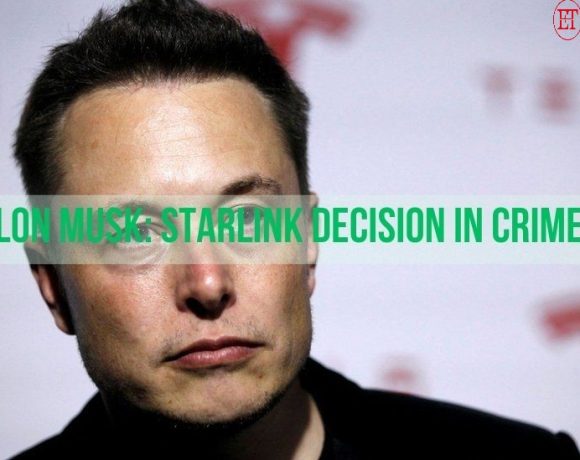
In the pursuit of fostering innovation for a sustainable future, the CEO of Ryoto Electrix, Sandeep Ralhan, is leaving no avenue unexplored. Embracing a strong commitment to environmental consciousness, Ralhan has played a pivotal role in steering the company from its inception to its current standing as a frontrunner in eco-friendly mobility and renewable energy solutions. Here Ralhan shares his valuable insights into the company’s accomplishments, obstacles, and future ambitions. Join us as we delve into the exemplary leadership characterized by a blend of foresight and creativity, alongside the impactful endeavors shaping Ryoto Electrix’s trajectory toward a cleaner, more sustainable future.

Can you describe the journey of Ryoto Electrix and its evolution in the green mobility and renewable energy sectors?
Ryoto Electrix, the pionerring two-wheeler EV company embarked on its journey with a commitment to revolutionize transportation through environmentally friendly solutions, initially focusing on high-performance electric vehicles (EVs) with zero emissions. This vision quickly gained momentum, establishing the company as a leader in the sustainable mobility sector. As Ryoto Electrix expanded, it recognized the interconnected nature of transportation and energy usage, prompting its expansion into renewable energy solutions. By incorporating solar, wind, and other sustainable energy sources, the company aimed to develop a holistic ecosystem that not only powered its EVs but also played a role in reducing carbon emissions on a broader scale.
Ryoto Electrix boasts a formidable leadership team poised to revolutionize the electric vehicle industry. Led by CFO CA Ravi Jain, a seasoned finance professional with a wealth of experience, the company is anchored to his strategic financial acumen. Complementing Jain’s expertise is CTO S Dhillon, whose extensive background with Maruti Suzuki & Honda ensures innovative technological advancements. Steering the company’s sales and marketing division is Director and Co-founder Muktika Sharma. Her remarkable proficiency in cultivating and expanding dealer networks underscores Ryoto Electrix’s commitment to robust market penetration and growth. Together, this dynamic trio embodies the firm’s vision and drive for sustainable mobility solutions.

As CEO, what is your greatest achievement with Ryoto Electrix?
As CEO of Ryoto Electrix, singling out one pinnacle achievement amidst our journey of innovation and expansion is a daunting task. Yet, if I were to pinpoint a standout accomplishment, it would be our seamless integration of cutting-edge technology with an unwavering dedication to sustainability. Our ability to not only pioneer groundbreaking EVs but also to cultivate an entire ecosystem around green mobility and renewable energy stands as a testament to our commitment to transformative change.
From the inception of Ryoto Electrix, our goal has been to revolutionize the transportation industry. Witnessing this vision materialize into a tangible impact has been immensely rewarding. Furthermore, fostering a culture of innovation and collaboration within our organization has been instrumental in our success. By empowering our team to challenge norms and think creatively, we’ve consistently stayed ahead of the curve in an industry that’s evolving at lightning speed.
Furthermore, our dedication to forming strategic partnerships and alliances has been instrumental in expanding our reach and influence. By working closely with aligned organizations, we’ve magnified our effect and accelerated the worldwide embrace of sustainable technologies. Ultimately, our most significant accomplishment is our contribution to shaping a more sustainable tomorrow. Each electric vehicle on the streets and every renewable energy solution implemented symbolizes advancement in combating climate change and preserving our planet for future generations. As CEO, seeing Ryoto Electrix spearhead this crucial initiative is deeply rewarding, as we persist in catalyzing positive transformation and motivating others to unite with us on this path.
What propelled the shift from the banking profession to entrepreneurship, and how did you overcome the challenges?
Moving from the structured realm of the banking sector to entrepreneurship was driven by a profound longing for autonomy, influence, and the opportunity to follow my passion for innovation and sustainability. While my time in banking provided me with valuable insights, I felt a strong urge to chart my own course and make a significant impact in a swiftly changing environment.
The journey from being a banking professional to a business leader was marked by numerous challenges. Adapting to the dynamic and unpredictable nature of entrepreneurship demanded a shift in mindset, embracing ambiguity, and being comfortable with risk and uncertainty. Additionally, acquiring new skills beyond finance, such as product development and team management, required continuous learning, seeking mentorship, and surrounding myself with diverse talents.

Establishing credibility, building networks, and securing funding were formidable hurdles as well. It took perseverance, compelling storytelling, and demonstrating market potential to gain traction in the entrepreneurial ecosystem. However, through resilience, relentless focus on our vision, and a supportive team, we overcame these obstacles, learning from failures, and remaining agile to seize opportunities. Despite the challenges, the journey has been immensely rewarding. The chance to build something impactful, drive positive change, and stay true to our values has made every hurdle worthwhile.
What challenges have you faced in introducing ‘Made in India’ electric vehicles and how have you addressed them?
Introducing ‘Made in India’ electric vehicles (EVs) has been a journey characterized by distinctive challenges, yet our approach has been defined by resolve, creativity, and an unwavering dedication to sustainable mobility. Initially, the shortage of sufficient charging infrastructure presented a notable obstacle. To tackle this issue, we established collaborations with government bodies and utility companies, expediting the rollout of charging stations across the country. Furthermore, we made significant investments in our network of fast-charging booths, guaranteeing convenient accessibility for our customers and enhancing confidence in the adoption of EVs.
Building consumer awareness and fostering widespread adoption of EVs proved another significant challenge. We tackled this through extensive marketing and awareness campaigns, emphasizing the myriad benefits of electric mobility, including cost savings, environmental sustainability, and superior performance. Incentives and subsidies were also offered to make EV purchases more accessible, catalysing interest among a broader audience and driving market growth.
Furthermore, ensuring a robust supply chain, navigating regulatory compliance, and staying abreast of technological advancements were paramount. By collaborating closely with local suppliers, engaging with regulatory authorities, and investing in R&D, we’ve established a resilient supply chain, maintained regulatory compliance, and remained at the forefront of EV innovation. Despite the challenges, we view each obstacle as an opportunity for growth and innovation, confident in our ability to drive the transition towards a sustainable future of mobility, both in India and beyond.
Sustainability is a core component of your business model. What specific practices does Ryoto Electrix implement to promote sustainable development?
Sustainability lies at the heart of Ryoto Electrix’s business model, influencing every facet of our operations, products, and partnerships. Our primary focus revolves around electric mobility solutions, where we design and promote electric vehicles powered by clean energy sources, significantly reducing reliance on fossil fuels and combating air pollution. This commitment to eco-friendly transportation not only contributes to a healthier environment but also aligns with our mission to drive sustainable development.
Aligned with our electric vehicle production, we seamlessly incorporate renewable energy solutions like solar and wind power into our infrastructure. By utilizing clean energy to drive our operations, we not only diminish our carbon footprint but also showcase our steadfast commitment to embracing renewable energy. This dual strategy of manufacturing eco-conscious vehicles and sustaining our operations with renewable sources underscores our comprehensive dedication to environmental stewardship.
Furthermore, our sustainability efforts extend beyond our internal operations to encompass our supply chain, community engagement, and continuous innovation. We collaborate closely with suppliers to ensure adherence to environmental and social standards, engage with local communities to raise awareness about eco-friendly practices and invest in research and development to advance technology and drive further reductions in environmental impact. Through these comprehensive initiatives, Ryoto Electrix strives to be a leader in sustainable mobility, catalysing positive change and contributing to a greener, more sustainable future for generations to come.
How do you envision the future of electric vehicles and renewable energy in India?
The future of electric vehicles (EVs) and renewable energy in India holds tremendous promise, driven by a combination of technological advancements, favourable government policies, and growing environmental consciousness among consumers. I envision a landscape where EVs become increasingly prevalent on Indian roads, propelled by advancements in technology that make them more affordable and convenient for the average consumer. With the government’s ambitious incentives and policies aimed at promoting EV adoption, coupled with a burgeoning infrastructure for charging stations, EVs are poised to revolutionize the transportation sector and significantly reduce carbon emissions.
Renewable energy is set to play a central role in India’s quest for energy sustainability and security. The country has made significant strides in harnessing solar and wind power, with ambitious targets for expanding renewable energy capacity in the coming years. As technology continues to improve and costs decline, renewable energy sources will become increasingly competitive with traditional fossil fuels, offering a cleaner, more sustainable alternative. This transition to renewable energy not only reduces India’s dependence on imported fossil fuels but also creates new opportunities for job creation and economic growth in the renewable energy sector.
However, challenges such as intermittency, grid integration, and storage capabilities must be addressed to fully unlock the potential of renewable energy in India. Collaborative efforts between government, industry, and academia will be essential in overcoming these hurdles and realising the full benefits of a clean energy future. With concerted action and continued innovation, India is well-positioned to lead the way toward a greener, more sustainable future powered by electric vehicles and renewable energy sources.
In terms of policy, what changes would you like to see to better support the growth of electric vehicles and renewable energy in India?
To bolster the expansion of electric vehicles (EVs) and renewable energy in India, several pivotal policy adjustments are imperative. Foremost, the implementation of robust financial incentives and subsidies is crucial to catalyze demand for EVs. These incentives might encompass tax exemptions, purchase subsidies for EVs, and incentives for manufacturers to localize EV production. Similarly, providing subsidies and incentives for renewable energy initiatives, like solar and wind power, would incentivize increased adoption and investment in clean energy infrastructure, nurturing a more sustainable energy landscape.
Investing in a widespread charging infrastructure network is critical to alleviate range anxiety and facilitate the transition to electric vehicles. Government policies should prioritise the development of charging stations in urban areas, along highways, and in public spaces. Incentives could be provided to businesses to install charging stations, and regulations could mandate new construction projects to include EV charging facilities, ensuring accessibility and convenience for EV owners.
Additionally, increased funding for research and development (R&D) in EV technology and renewable energy solutions is vital for innovation and cost reduction. Government-supported R&D initiatives can accelerate the development of advanced battery technologies, improve charging efficiency, and drive down the cost of renewable energy generation, fostering technological advancements that propel India towards a more sustainable energy future. Through these policy changes, India can create an enabling environment for the widespread adoption of electric vehicles and renewable energy, driving economic growth, reducing greenhouse gas emissions, and enhancing energy security for the future.
What role will electric vehicles play in India’s goal of reducing carbon emissions in the next decade?
Electric vehicles are poised to play a pivotal role in India’s ambitious goal of reducing carbon emissions over the next decade, particularly in the transportation sector. Given that transportation is a significant contributor to India’s carbon footprint, transitioning to EVs offers a promising pathway to decarbonise this critical sector. With zero tailpipe emissions, EVs represent a cleaner and greener alternative to traditional internal combustion engine vehicles, effectively reducing air pollution and greenhouse gas emissions associated with transportation activities.
Furthermore, the integration of renewable energy sources into India’s energy mix presents a synergistic opportunity with the adoption of electric vehicles. India has been rapidly expanding its renewable energy capacity, particularly in solar and wind power. EVs can serve as a vital demand-side management tool, enabling the efficient utilisation of renewable energy by charging during periods of high generation. This integration not only maximises the utilisation of clean energy resources but also further reduces carbon emissions from the transportation sector, contributing significantly to India’s carbon reduction goals.
Moreover, supportive government policies, technological advancements, and increasing consumer awareness are expected to accelerate the adoption of EVs in India. Initiatives such as subsidies, incentives, and regulatory mandates aimed at promoting electric mobility are already gaining traction, driving consumer interest and investment in the EV market. As EV technology continues to improve and costs decline, coupled with the expansion of charging infrastructure, the adoption rate of electric vehicles is anticipated to rise, leading to substantial emission reductions and positioning India as a leader in sustainable transportation solutions.
Could you share details about any upcoming projects or initiatives that Ryoto Electrix is currently developing or planning to launch in the near future?
While I can’t provide specific details about upcoming projects or initiatives at Ryoto Electrix at the moment, I can assure you that we’re continuously exploring new avenues to enhance our offerings and serve our customers better. Our commitment to research and development drives us to seek advancements in electric mobility, renewable energy solutions, and sustainable technologies.
Staying at the forefront of industry trends and emerging technologies is a priority for us, and we’re actively working on initiatives that align with our vision of creating a more sustainable future. Whether it’s developing innovative electric vehicle technologies, expanding our renewable energy portfolio, or forging new partnerships and collaborations, we’re dedicated to pushing the boundaries of innovation.
As soon as we have concrete details to share about upcoming projects or initiatives, we’ll be sure to communicate them with our stakeholders.
How does Ryoto Electrix integrate emerging technologies like AI and IoT into its products to enhance performance and user experience?
Ryoto Electrix is committed to incorporating cutting-edge technologies such as Artificial Intelligence (AI) and the Internet of Things (IoT) into our product lineup to enhance performance and user satisfaction. With AI-driven efficiency improvements, our electric vehicles and energy systems are designed to optimize energy usage, anticipate maintenance requirements, and enhance overall performance. Through constant analysis of data collected from onboard sensors and systems, our products dynamically adjust to real-world conditions, resulting in improved efficiency, reliability, and cost-effectiveness for our customers.

Our commitment to smart connectivity enables seamless interaction between our products and external devices, platforms, and infrastructure. Equipped with IoT sensors and connectivity features, our electric vehicles and energy solutions offer remote monitoring, diagnostics, and control capabilities. Users can access real-time data, monitor energy consumption, and manage charging or energy storage systems remotely, enhancing convenience, control, and peace of mind.
The integration of AI and IoT technologies enables us to personalise the user experience based on individual preferences, behaviours, and environmental conditions. Through intelligent data analysis and machine learning algorithms, our products deliver customised settings, recommendations, and features tailored to meet the unique needs of each user. From optimising driving modes for efficiency to providing predictive maintenance alerts, our solutions offer a personalised experience that enhances user satisfaction, engagement, and loyalty. With a focus on safety and security, AI-powered safety features and IoT-enabled security measures enhance the overall safety and protection of our products, ensuring a secure and reliable user experience.
How has the support of your family contributed to your success as CEO of Ryoto Electrix?
The support of my family has been indispensable throughout my tenure as CEO of Ryoto Electrix, playing a pivotal role in my achievements across multiple fronts. Their steadfast emotional support has been a source of strength and assurance as I navigate the intricacies of leadership, offering unwavering encouragement and faith in my capabilities through both trials and victories. Their empathy and adaptability have also facilitated a harmonious work-life balance, affording me the opportunity to fulfill my professional duties while cherishing invaluable moments with loved ones. This balance ensures that I approach my role with clarity, vigor, and a sense of purpose.
Moreover, my family serves as a constant source of inspiration and motivation, driving me to strive for excellence and lead by example. Their unwavering belief in me fuels my determination to propel Ryoto Electrix forward, instilling in me a deep sense of purpose and responsibility toward creating a positive impact in the world. Their wisdom, guidance, and shared celebrations serve as reminders of the significance of my work and reinforce my commitment to leading with integrity, vision, and dedication, underscoring the invaluable role of family support in my journey as CEO.
Picture Courtesy: Pegasus Photography/images are subject to copyright

